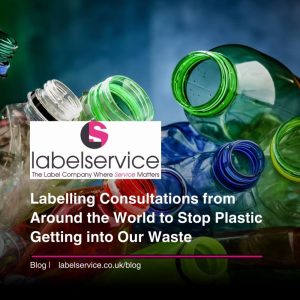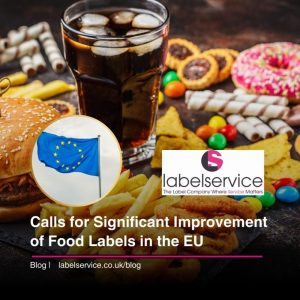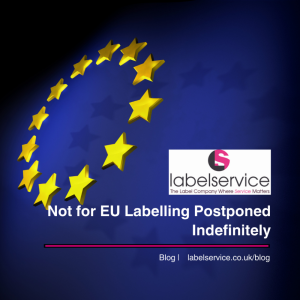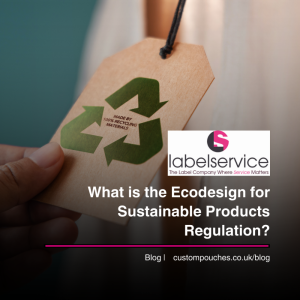The Farm to Fork Strategy is at the heart of the European Green Deal aiming to make food systems fair, healthy and environmentally-friendly. The Farm to Fork Strategy aims to accelerate our transition to a sustainable food system that should:
- have a neutral or positive environmental impact
- help to mitigate climate change and adapt to its impacts
- reverse the loss of biodiversity
- ensure food security, nutrition and public health, making sure that everyone has access to sufficient, safe, nutritious, sustainable food
- preserve affordability of food while generating fairer economic returns, fostering competitiveness of the EU supply sector and promoting fair trade
The strategy sets out both regulatory and non-regulatory initiatives, with the common agricultural and fisheries policies as key tools to support a just transition.
Resistance
The EU’s Farm to Fork policy is not only facing strong opposition from agribusiness, but even the commissioner responsible for agriculture has expressed his reservations. While the EU has moved forward with its plan to abolish the combustion engine, another flagship aspect of the Green Deal—agriculture and food policy—is proving almost impossible to implement.
The Commission released the Farm to Fork strategy in 2020, proposing some 30 measures to transform both agricultural practices and consumer food habits. It looks to tighten animal welfare standards, triple organic agriculture, reduce pesticide use and fertiliser runoff by 50%, and create standardised consumer food labelling to nudge Europeans’ eating habits away from fats, salt, and sugar, towards more ‘sustainable’ nutrition.
But it is meeting resistance from both member states and industry. Even EU Agriculture Commissioner Janusz Wojciechowski, who has always been sceptical of the plan, recently downplayed its importance. “The Green Deal is not a law,” Wojciechowski told the Polish Parliament in December 2022. “It is a political program in which all sorts of objectives are included, and which, as is the case with political programs, will be implemented to a greater or lesser extent.”
Indeed, the Commission initially emphasised that the strategy largely consists of aspirational targets. But the EU Parliament’s resolution supporting the strategy called for giving them a “binding nature,” in other words, moving from aspirations to law. In June 2022, the commission proposed a revamp of the bloc’s pesticide rules that includes binding targets to reduce pesticide use in member states.
Consumers are already pushing some in the agriculture industry to use fewer pesticides, but the target is still meeting strong resistance, as shown in an internal report from the Directorate General of Agriculture on the implementation of the Farm to Fork policies.
Titled “overview of the politically sensitive topics,” the document was leaked to Politico, which revealed that the issue is “very sensitive in the Council and with stakeholders.” The national reduction targets sent by the Commission to member states are under debate, the document added, because the proposed cuts were made by the health and food safety directorate. Despite the fact that the Farm to Fork policies directly affect farmers, the commissioner for agriculture and the Directorate-General for Agriculture have largely been sidelined from its policy creation.
Although the strategy is called Farm to Fork, Ursula von der Leyen, Commission president, put its formulation and implementation in the hands of the health and food safety department of the EU. The agriculture department still controls the Community Agriculture Policy (CAP) that governs farm subsidies and comprises about a third of the EU budget, but the two policies are separate. Wojciechowski was notably absent from the public presentation of the strategy and under von der Leyen, his directorate has lost political influence compared to previous commissions.
Additionally, according to Politico, proposals in the Farm to Fork strategy related to nature restoration and the circular economy (markets that incentivise reuse) are “politically sensitive” for the farming sector. Recommendations, meant to crack down on greenwashing by companies, are considered “too burdensome” for agrifood businesses. Meanwhile, the proposal to cut back on the amount the EU spends on promoting red meat and wine—two star European agricultural products—is “blocked”—leading some to consider it hypocritical for Brussels to continue to promote foods while establishing policies to discourage Europeans from consuming them, particularly meat and fat.
Not surprisingly, proposals to put health warning labels on alcohol and to create “nutrient profile” requirements to market foods as healthy are just as contentious. Along the same line, the possibility of creating a new food sustainability label is viewed with “high political concern by the farming community.” Furthermore, suspicions have been raised by a new regulatory framework to permit growing gene-edited crops, currently being drafted by the Commission.
All the criticism coming before the Commission has unveiled the capstone of the policy—a legal framework outlining what it considers a sustainable food system. Nevertheless, the framework is already facing “possible criticisms from third countries on rules applicable to imports,” according to the document. The U.S. has been highly critical of Farm to Fork. In 2021, the U.S. Department of Agriculture published a study that estimated it would lead to reduced productivity and higher food prices. Imports into the EU are often required to conform to the same production requirements as EU products, raising concerns about its wider effects. The U.S. has also expressed deep reservations about pesticide use restrictions.
Even within the EU, a new framework “might generate concerns” for farmers and others who are already “highly regulated,” the directorate general for agriculture warns. “Every time the EU comes up with another requirement, not only does it impose an extra cost on producers but it also makes it harder for non-EU competitors to serve EU consumers,” Pieter Cleppe, editor-in-chief of brusselsReport.eu told The European Conservative. He added that there is often an underlying protectionist aspect to the regulations.
In a recent article in The Critic, Cleppe cited the EU’s long-standing opposition to genetically modified crops while wanting to reduce the use of pesticides:
The EU’s anti-innovation mindset surrounding GMO crops has put it out of step with the rest of the world, but genetic modification could be a wiser alternative to heavy-handed regulation of pesticides. As findings by the renowned molecular biologist Marc Van Montagu make clear, GM technologies not only reduce the need for pesticides but also increase productivity, reduce soil erosion, and prevent tons of CO2 emissions.
Meanwhile, the EU Parliament has cited gaps in the Farm to Fork policy, as it does not address the low prices farmers are paid for their products. In February, it also called on the commission to develop a comprehensive strategy for fertilisers to alleviate Europe’s dependence on synthetic fertilisers whose nutrients are necessarily imported from countries such as Russia.
War in Ukraine Exposing Unsustainability
The war in Ukraine has derailed the European Union Farm to Fork initiative — and sparked a debate about what constitutes sustainable agriculture. In March 2020, the EU, unveiled its Farm to Fork (F2F) strategy, an ambitious policy designed to reduce agriculture’s carbon footprint. The stated objective: to “accelerate our transition to a sustainable food system”. It outlines five major components:
- Have a neutral or positive environmental impact
- Help mitigate climate change and adapt to its impacts
- Reverse the loss of biodiversity
- Ensure food security, nutrition and public health, making sure that everyone has access to sufficient, safe, nutritious, sustainable food
- Preserve affordability of food while generating fairer economic returns, fostering competitiveness of the EU supply sector and promoting fair trade”
The ambition is to begin a transition to a ’more sustainable’ farming system. What that means in practice and how ‘sustainability’ is defined remain largely unaddressed and controversial.
The response to the strategy has been mixed. In general, environmentalists saw it as a potential shift away from what they see as destructive farming practices that rely on synthetic fertilizers and crop chemicals. An analysis in Nature Food praised it as “a first step towards genuine food systems governance and … well timed to address some of the most pressing environmental and public health concerns that European society faces”. Many green groups saw it as a victory for an ‘organic first’ policy. The pan European group Organic Cities claimed it “put organic farming at the heart of the transition to sustainable food systems.” Many sustainability experts are less sanguine. F2F supporters, including the Nature Food commentators, noted that the commitments are as yet just aspirational: “the concept remains rather ill-defined in the F2F Strategy, appearing as a panacea without clear conceptual boundaries.”
Others question equating organic practices with sustainability, noting that life-cycle studies conclude that the environmental benefits of almost tripling organic acreage could end up releasing more polluting carbon into the atmosphere than conventional practices. Economists were harsh in their assessments. F2F, however well meaning, could significantly increase global food insecurity. Its targets are unrealistic, and implementation would reduce food production, resulting in higher food prices.
F2F could send global food prices soaring — by 89% if all countries followed the European model. Tightening the EU food supply would likely result in price increases that affect consumer budgets, reduce food security, and decrease GDPs worldwide…. Our models find that the more widespread EC’s measures limiting usage of agricultural inputs, the more marked these impacts become, with consequences for international food insecurity.
Perhaps the most significant unintended consequence of F2F is the disruptions it could bring to Africa and other vulnerable regions likely to face the brunt of the inevitable shortfalls in European food production. The USDA study estimated that “the number of food-insecure people in the world’s most vulnerable regions [would increase] by 185 million (global adoption).” A Centre for Africa-Europe Relations brief (6) on F2F also raised red flags, suggesting the plan does not take into account the global sustainability impact of its ‘Europe-first’ proposal.
The war in Ukraine which has brought sizable food disruptions globally has further thrown into doubt the ambitious goals established by the F2F. It’s prompted an ongoing debate within the EU about whether the strategy should be altered considering the global food disruption caused by the year-long conflict. Food and fertilizer prices have soared as both Russia and Ukraine are bread baskets suppling global markets with wheat, barley, corn, sunflower oil and fertilizers. The associated price hikes for major agricultural commodities and inputs have contributed to global inflationary pressures.
A European Parliament report (7) from April 2022 noted the magnitude of the escalating food crisis and the collateral damage the war has caused. Ukraine normally supplies almost half of the cereals (52% of EU corn imports) and vegetable/rapeseed oils (23% and 72% of EU imports respectively) and a quarter of the poultry meat imported to Europe, and Russia is a major global exporter of fertilizers, vegetable oils, wheat and barley. The two countries together account for more than 30% of world wheat exports and nearly 30% of barley.
Russia is the world’s biggest supplier of fertilizers, and second largest exporter of potash, a key ingredient in fertilizers. … sanctions will oblige the EU to replace the import share of Russia and Belarus, respectively 60% for potash and 35% for phosphates. In the EU, some fertilizer producers have temporarily halted production, as energy costs were too high.
Europe has at least temporarily slowed its plans to pass F2F sparking a clash between the proponents and opponents of the strategy. F2F supporters are loathe to compromise, arguing the war’s disruptions are temporary. They argue the urgency of climate change demands that F2F be fully implemented and not watered down. Sceptics argue the Ukraine war has made it clear why F2F’s targets were never achievable, and reconsideration is necessary. They argue for a more comprehensive assessment of food sustainability, which would put innovative technologies such as genetically engineered crops, including CRISPR gene edited varieties, on the table for consideration.
Only science and technology can make agriculture more sustainable, lessen its carbon footprint and reduce the use of chemical inputs. The failure of the EU to adopt genetic engineering (GE) for crops at a time when many countries (14) including China, Israel, USA, Canada, Argentina, England, Brazil, Japan — and now countries in Africa — are doing so would place EU farmers at a severe competitive disadvantage without making agriculture more sustainable.

















